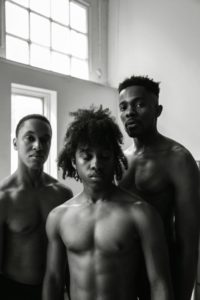
JAH GREY
Dancing in the night, 2018
© all visuals Jah Grey
Jah Grey is a self-taught photographic artist primarily focused on portraiture who began his career in 2014. His photographs focus on the relationship between body and space, showcasing the struggle between the idealized norm vs the desired embodiment. His work is inspired by shared experiences of vulnerability. His subjects are typically black men who do not fit or have a desire to fit the label of hyper-masculinity imposed upon them. Jah skillfully uses the power of his photographic images to share the deep and meaningful stories behind his subjects and actively remains unafraid to expand himself as an artist. Jah is on a dedicated journey to transparency by living his truth, depicting it through photography, video installations, and sculptures.
Jah’s work acts to educate and encourage society to unlearn the teachings that act to separate us in order to advocate for a more fluid and diverse world. Systems of oppression have been created to ensure that certain folks who aren’t considered the ‘norm’ continue to be the most unwanted, undesired, and unprotected of the races. By focusing on challenging these concepts, his photos bravely remind all of us of the similarities we share, despite our differences. Jah Grey’s work encourages us all to live out loud and not feel silenced or shamed around our bodies but feel able to express ourselves in any way we choose.
Jah Grey’s photographs have been shown across Ontario – including in the Museum of Contemporary Art the Art Gallery of Ontario and the Art Gallery of Burlington Jah Grey’s photographs have also been shown across the United States of America – including at the Ford Foundation Gallery in New York City and in Los Angeles at the LAMBDA LITFEST and for the National Day of Healing hosted by Ava Duvernay at her ARRAY HQ.
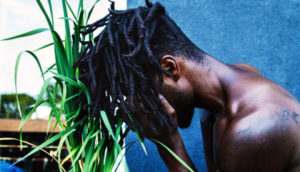
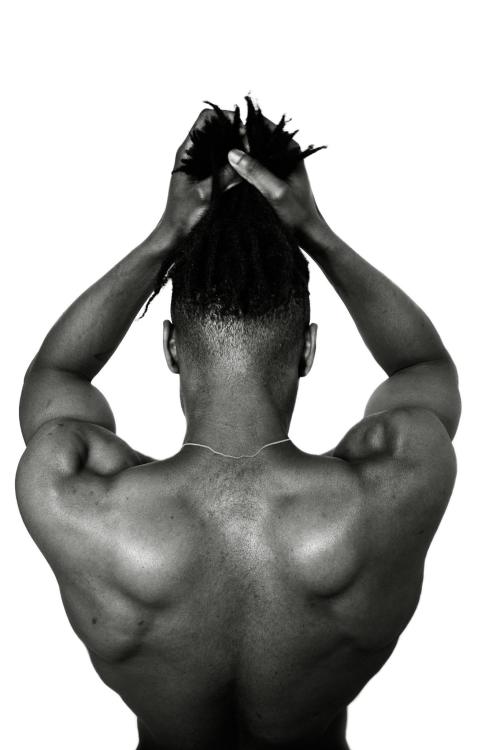
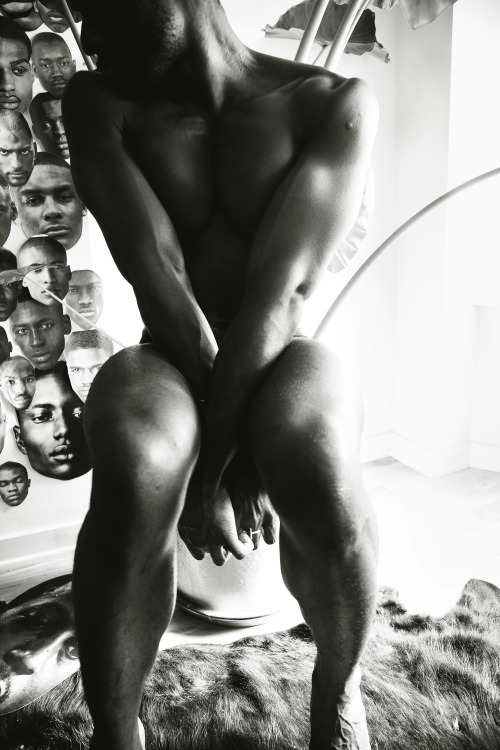
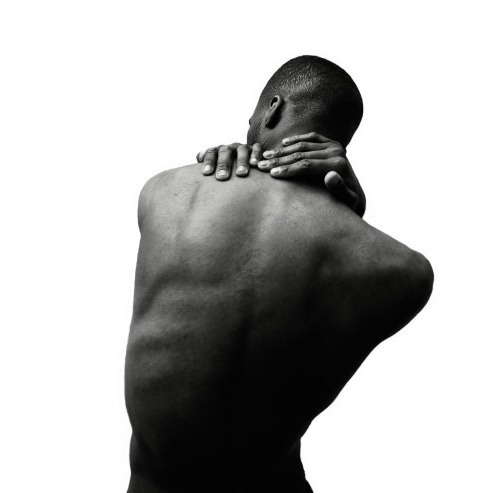
ARTIST STATEMENT
The work that I create is situated in the resistance to the ideology of hyper-masculinity and rebelling against the constructs others place on our bodies and our identities. My practice is rooted in the struggle for social justice, and I strive to produce counter-narratives to misogynistic and patriarchal societal norms about masculinity and vulnerability. These problematic ideas assume notions of masculinity (hyper-masculinity) which enforce the idea that men cannot be vulnerable, while overlooking, even punishing men who choose to make their vulnerability visible outside our many stereotypes. This is especially true for black men. In my overall practice, my images is an ongoing study that explores the disconnect between the concepts of vulnerability and masculinity, showcasing the struggle between the idealized norm vs. the desired embodiment. Inspired by shared experiences of vulnerability, my subjects are typically black men who do not fit, or have a desire to fit the label of hyper-masculinity imposed upon them.
I feel we often let society control and dictate who we are, where we belong and whom we need to be and forget to carve out new spaces in ourselves for change, growth, and evolution. By constantly conforming to the ideals of society forces us to forget about ourselves. We all experience varying levels of alienation, erasure, and self-erasure due to complex systems of oppression, set in place particularly to be critical of the black body. My portraits will encourage us all to live out loud and not feel silenced or shamed around our bodies but feel able to express ourselves in any way we choose, to remind us all of the similarities we share despite our differences. I aim to deconstruct this problematic binary to remind the viewer that by confronting their fears about their bodies, it enables us to embrace everything that we are, as individuals and as a community, encouraging the practice and process of self-love.
I believe that men of color deserve to be captured for the sake of beauty and for the sake of slowly dismantling the image of toxicity we’ve been fed for too long. I had so few positive role models growing up and I’ve always wished blackness, as a positive attribute was celebrated more. The fear of vulnerability makes us hide and I believe we should recommit to having larger conversions that might someday, see men of color in their full light.(text website artist/© artist)
